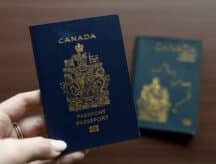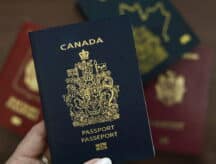Changes to Canada’s permanent residence fees starting April 30, 2024
Immigration, Refugees and Citizenship Canada (IRCC) has announced that, as of 9:00:00 AM Eastern Time on April 30, 2024, the department will be increasing certain permanent residence (PR) fees.
IRCC notes that this fee increase is being introduced according to Canada’s Immigrant and Refugee Protection Regulations (IRPR), calculated “in accordance with the cumulative percentage increase to the Consumer Price Index for Canada, published by Statistics Canada.”
Discover if You Are Eligible for Canadian Immigration
Changes to PR fees
The following fee increases, which are marked as applicable to the period between April 2024 and March 2026, apply as follows:
| Program | Applicants | Current fees (April 2022– March 2024) | New fees (April 2024–March 2026) |
|---|---|---|---|
| Right of Permanent Residence Fee | Principal applicant and accompanying spouse or common-law partner | $515 | $575 |
| Federal Skilled Workers, Provincial Nominee Program, Quebec Skilled Workers, Atlantic Immigration Class and most economic pilots (Rural, Agri-Food) | Principal applicant | $850 | $950 |
| Federal Skilled Workers, Provincial Nominee Program, Quebec Skilled Workers, Atlantic Immigration Class and most economic pilots (Rural, Agri-Food) | Accompanying spouse or common-law partner | $850 | $950 |
| Federal Skilled Workers, Provincial Nominee Program, Quebec Skilled Workers, Atlantic Immigration Class and most economic pilots (Rural, Agri-Food) | Accompanying dependent child | $230 | $260 |
| Live-in Caregiver Program and caregivers pilots (Home Child Provider Pilot and Home Support Worker Pilot) | Principal applicant | $570 | $635 |
| Live-in Caregiver Program and caregivers pilots (Home Child Provider Pilot and Home Support Worker Pilot) | Accompanying spouse or common-law partner | $570 | $635 |
| Live-in Caregiver Program and caregivers pilots (Home Child Provider Pilot and Home Support Worker Pilot) | Accompanying dependent child | $155 | $175 |
| Business (federal and Quebec) | Principal applicant | $1,625 | $1,810 |
| Business (federal and Quebec) | Accompanying spouse or common-law partner | $850 | $950 |
| Business (federal and Quebec) | Accompanying dependent child | $230 | $260 |
| Family reunification (spouses, partners and children; parents and grandparents; and other relatives) | Sponsorship fee | $75 | $85 |
| Family reunification (spouses, partners and children; parents and grandparents; and other relatives) | Sponsored principal applicant | $490 | $545 |
| Family reunification (spouses, partners and children; parents and grandparents; and other relatives) | Sponsored child (principal applicant under 22 years old and not a spouse/partner) | $75 | $85 |
| Family reunification (spouses, partners and children; parents and grandparents; and other relatives) | Accompanying spouse or common-law partner | $570 | $635 |
| Family reunification (spouses, partners and children; parents and grandparents; and other relatives) | Accompanying dependent child | $155 | $175 |
| Protected persons | Principal applicant | $570 | $635 |
| Protected persons | Accompanying spouse or common-law partner | $570 | $635 |
| Protected persons | Accompanying dependent child | $155 | $175 |
| Humanitarian and compassionate consideration / Public policy | Principal applicant | $570 | $635 |
| Humanitarian and compassionate consideration / Public policy | Accompanying spouse or common-law partner | $570 | $635 |
| Humanitarian and compassionate consideration / Public policy | Accompanying dependent child | $155 | $175 |
| Permit holders | Principal applicant | $335 | $375 |
Notes from IRCC
IRCC notes that, in addition to dependent children and protected persons (including principal applicants and all accompanying family members), the following groups of applicants are exempt from paying the department’s Right of Permanent Residence (RPR) Fee:
- Sponsored child (of a principal applicant under the family reunification class) – the child must be under 22 years old and not have a spouse/partner
- Principal applicants under the humanitarian and compassionate consideration and public policy classes
Note: This fee is normally paid by all permanent residence applicants (except for dependent children and protected persons). Principal applicants in the “humanitarian and compassionate consideration” and “public policy” categories are only exempt from the RPR fee under certain circumstances.
Additionally, IRCC clarifies that “permit holder” class permanent residence applicants are not eligible to include accompanying family members as part of their PR applications. Instead, all individuals eligible for PR through this class must submit their own applications for Canadian PR as a principal applicant.
- Do you need Canadian immigration assistance? Contact the Contact Cohen Immigration Law firm by completing our form
- Send us your feedback or your non-legal assistance questions by emailing us at media@canadavisa.com







